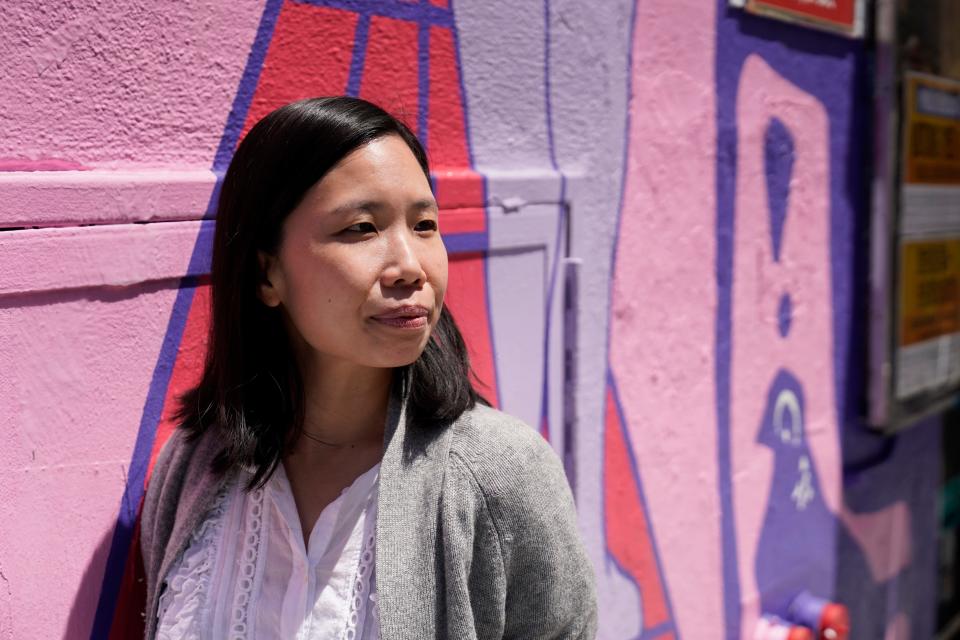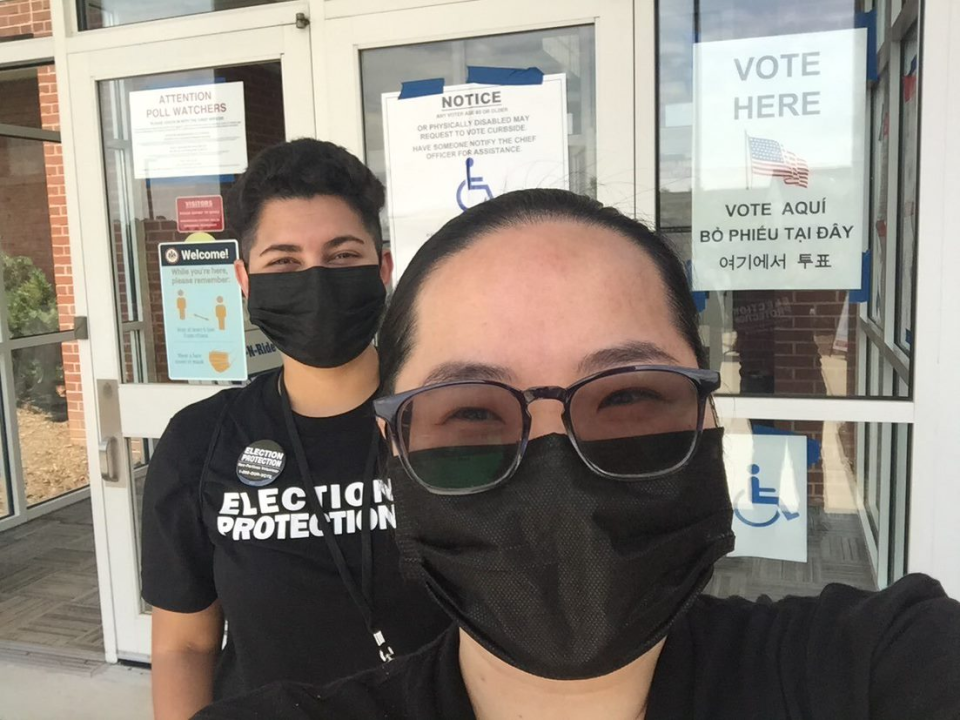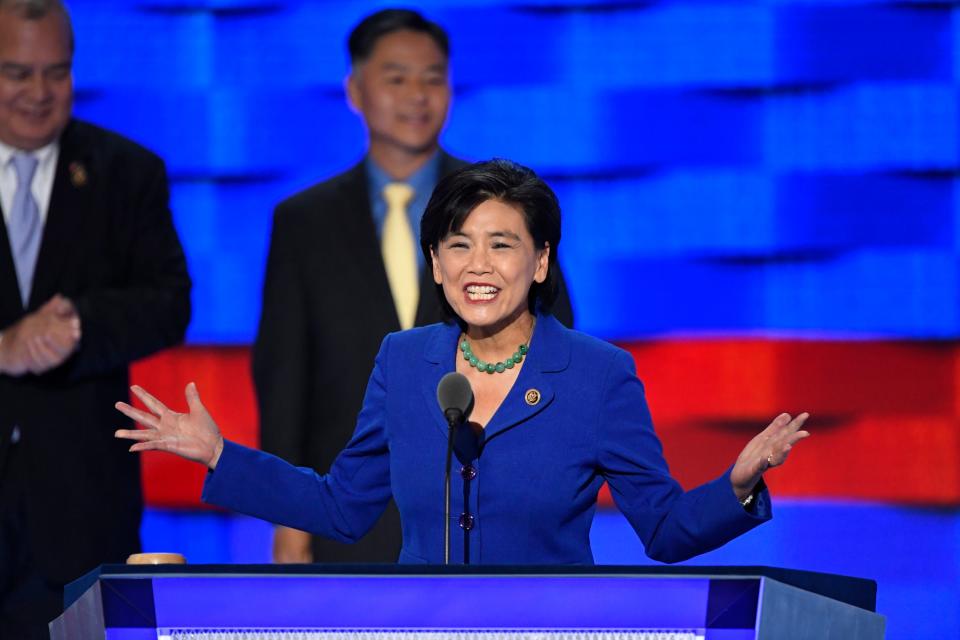Most Chinese Americans and other Asian Americans are unhappy with China, poll shows
Asian Americans largely feel positive about their ancestral homelands, a national survey has found, with one major exception: Barely 4 in 10 Chinese Americans said they favorably viewed mainland China. And among Asian Americans not from China, just 14% held favorable views of that country.
The Pew Research Center survey of more than 7,000 Asian Americans, conducted from July 2022 to January 2023, highlights the views of Asian Americans with origins in seven particular nations – China, India, Japan, Korea, the Philippines, Taiwan and Vietnam – about their ancestral homelands, the United States, their identity and global affairs.
Chinese Americans and Vietnamese Americans were the only two groups to view other countries more favorably than their own: Asian Americans with Chinese roots viewed Taiwan, South Korea and Japan more positively than their own, while Vietnamese Americans expressed more favorable views of Japan compared with their own ancestral homeland.
“To some extent that is not surprising,” said Karthick Ramakrishnan, founder and director of AAPI Data, a policy research and data hub at the University of California, Riverside, noting that the majority of Asian Americans – close to 60% − are foreign-born. “People coming from more authoritarian regimes have left for a reason."

Among Chinese Americans, 41% held favorable views of China, the survey found. Six in 10 Vietnamese Americans felt positive about Vietnam.
Faith influences Chinese immigrants' views
Russell Jeung, a professor of Asian American studies at California’s San Francisco State University, was also not surprised by Chinese Americans’ views on China.
“Many immigrants migrated after the Cultural Revolution and the Tiananmen Square massacre, so they were fleeing the Communist Party's regime,” he said. “If you've witnessed the repression of Hong Kong, the nation's human rights abuses, and its authoritarian state during COVID-19, you would also be likely to have a critical stance.”
A majority of Americans overall have a negative view of China, surveys show.
Jonathan Tan, professor of Catholic studies at Case Western Reserve University in Cleveland, said religion also plays a role in how Chinese Americans view mainland China. About 40% of Chinese Americans are Christian, he said. At least 5% of people in China identify as Christian.

“Their Christian faith impacts on how they view communism, the practice of their Christian faith, and the Chinese government's efforts to control and regulate Christianity,” Tan said. “One should not be surprised that many of these Chinese Americans, especially those who are practicing Christians, are not interested in returning to China so long as the current political system is in place.”
Chinese Americans more likely to favor Taiwan
Respondents generally had higher opinions of their ancestral nations than did those from other Asian countries, with India showing the starkest difference: While 76% of Indian Americans said they viewed their homeland favorably, just 23% of other Asian Americans had positive views of India – a gap of 53 percentage points.
Views of India were especially negative among Chinese and Korean adults, the survey found.
More than 6 in 10 Chinese Americans said they viewed Taiwan favorably, a notable finding given rising tensions between mainland China and Taiwan. Last month, Chinese officials accused the United States of provoking separatist activities in Taiwan, a self-governing island that China claims as part of its territory.
Chinese immigrant adults were more likely (45%) than those born in the United States (25%) to view China positively.
Ramakrishnan, of UC-Riverside, said the results spell difficulty for China's efforts through its "Young Thousand Talents" program to persuade young scholars who have sought higher education abroad to return to the mainland.
“This suggests that strategy will face a steep uphill climb,” he said.

Among all Asian Americans, those who viewed China positively or negatively varied little by political affiliation, in contrast with the U.S. general public. About 83% of Republicans and those who lean toward the GOP have an unfavorable view of China, while 68% of Democrats and their independent supporters share that negative opinion.
Most Asian Americans optimistic about the United States
The vast majority of those with roots in Taiwan (95%), Japan (92%) and South Korea (86%) said they had favorable views of their homelands, while the same three nations were viewed positively by a majority of Asian Americans not from those nations – Japan (67%), South Korea (60%) and Taiwan (56%).
Smaller majorities of those who traced their heritage to the Philippines (72%) and Vietnam (59%) expressed favorable views of those nations.
Meanwhile, more than three-quarters (78%) of respondents said they favorably viewed the United States and see it as the leading economic power of the next decade, with 44% describing their views as very favorable.
Jeung, of San Francisco State University, said one observation he gleaned from the findings was that developed Asian nations were viewed more favorably than those still developing.

“Asian Americans appear to value countries that are safe, healthy and efficiently run,” he said.
This article originally appeared on USA TODAY: China not popular with Chinese Americans, other Asian Americans


